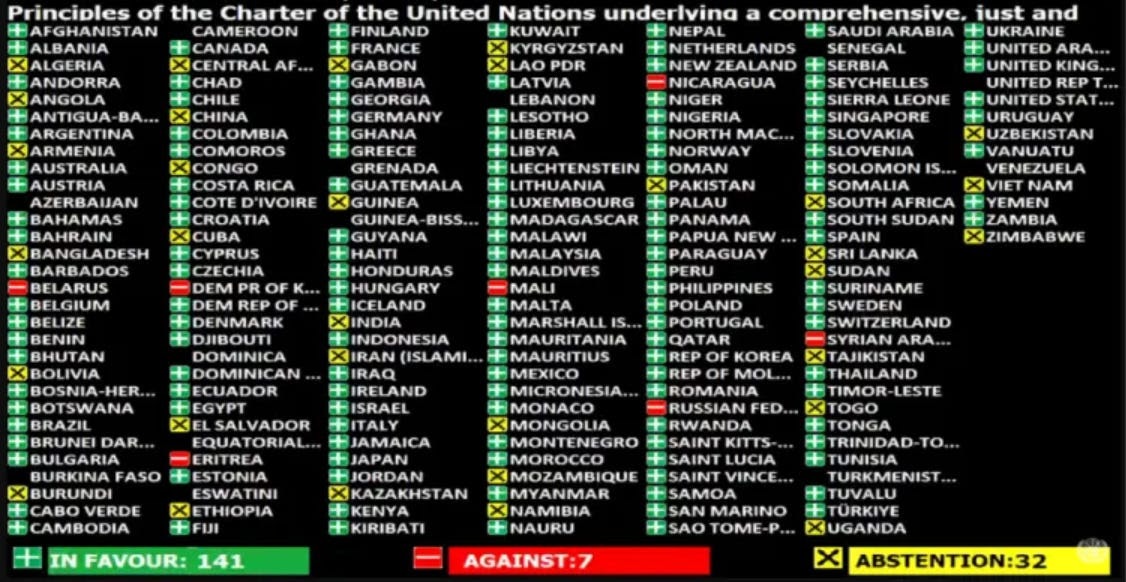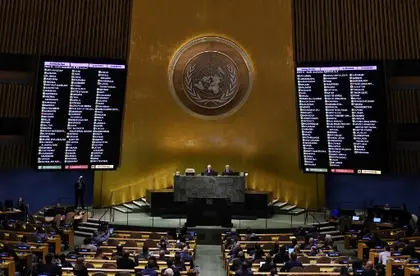China and India will dominate this century, economically and politically, and both are subsidizing Putin’s war with massive purchases of Russian oil. They also help him diplomatically by refusing to condemn Russia’s invasion, to sanction it, or to help Ukraine militarily fend off Putin’s brutality. But they are not alone. As the war enters its second year, a divide grows between the “West”, who back Ukraine, and the “rest” of the world.
JOIN US ON TELEGRAM
Follow our coverage of the war on the @Kyivpost_official.
In December, India assumed the Presidency of the G20 and was unable to get its finance ministers to agree on a joint statement condemning the war following objections by Russia and China. New Delhi even tried to replace the word “war” with “crisis” or “challenge” to appease objectors but its “politics of euphemism” failed. Countries in red have armed or sanctioned Russia.

Days before the February 24 anniversary of the invasion, the “Western” media began publishing retrospectives about Ukraine’s plight and heroism as well as about the flood of NATO weapons en route to Kyiv designed to expel Russians from the country this year. By contrast, media in the rest of the world zeroed in on the need for peace and concern that the European fight could escalate into a nuclear conflict. On February 23, a global poll showed that People in China, India, and Turkey want a “quick end” to hostilities in Ukraine even if it means ceding areas, and, by contrast, that the majority of Americans, Europeans and British view Russia as an “adversary” that must be defeated. The question posed to all was “do you prefer to stop the war or win the war?”

EU Transfers €1.5 Bln Raised From Russian Assets for Ukraine
On February 23, the United Nations General Assembly overwhelmingly called upon Russia to immediately and unconditionally withdraw from Ukraine, but there was slight slippage from the previous vote on March 2022. Of the Assembly’s 193 members, 141 voted for withdrawal (the same as in March) but two more, or seven, voted against the resolution -- Belarus, Eritrea, Mali, Nicaragua, Democratic People’s Republic of Korea, Russia Federation, and Syria. Another 32 abstained, including giants such as China, India, Pakistan, Bangladesh, South Africa, and former Central Asian Soviet republic Kazakhstan. And 13 nations simply “missed” the vote, bringing the total number opposed, fence-sitting, or missing in action concerning Russia’s immediate withdrawal to 52. These countries represent more than one-third of the General Assembly membership and more than half the world’s population.
The reason many want the war to end is not due to fatigue because most haven’t contributed to Ukraine’s alliance. It’s about the conflict’s side effects such as inflation, fear it may never end, or that it may turn into nuclear war. A few also reject the West’s narrative that the conflict is a moral cause, justified to protect democracy — despite the fact that democratic governments in South Africa, India, and Brazil refuse to join the coalition. Besides that, the morality argument is hard to swallow for many, given Europe’s world wars, its colonial past, and America’s history of warfare and of propping up dictators.
But the fear of escalation tops the list. For instance, “World War III is already here” screamed a headline on February 23, in the Hong Kong and Bangkok-based Asia Times, topping a piece written by American conservative Brandon Weichert. “Historians will look back with confusion as to how idiotic the leaders of this time were. US President Joe Biden, who journeyed to Kiev to reassert his undying support for Ukraine and a speech by Putin, who spoke for a whopping two hours on Tuesday evening, pledging his commitment to total victory, pulling out of the New START Treaty to control tactical nukes and how the United States was ruled by `satanists’ and `pedophiles’. There is now no hope for a peace deal.”
Russian “talking points” also underpin opposition, notably allegations that America and Europe ignore wars and problems in the Global South. Such resentment was apparent in exchanges I had with readers of Hong Kong-based South China Morning Post. Wrote one: “Millions have been displaced in the eastern parts of the Democratic Republic of the Congo by the fighting between the government and a rebel group called M23, with involvement from outside forces. The refugee crisis there is as bad as that from Ukraine. Where is the compassion and constant media attention for those victims with darker skins than ours?” Another posted: “Please think of Palestine, Yemen, Iraq & Libya first before talking about Ukraine. They had suffered worse & longer than Ukrainians.”
Last week, U.S. Secretary of State Antony Blinken finally went on the narrative offence by pointing out that in 2022 the U.S. contributed $13.5 billion in food aid and funded more than 40 percent of the World Food Program’s budget. Russia paid less than 1 percent of that budget. He added: “Based on the latest UN figures, the United States donates over nine times as much as Russia to UN peacekeeping. We donate 390 times as much as Russia to UNICEF. We give nearly a thousand times as much as Russia to the UN Refugee Agency.”
But the info battle remains fierce, designed to define this as “Europe’s War”, not a global one. And it has been somewhat effective, leading to a course correction by the West, specifically concerning India which is being shamelessly wooed now. India is considered the linchpin to credibility and support in Asia and worldwide and is rivalrous toward China, Russia’s ally.
India buys weapons as well as oil from Russia which is why the United States and Germany have launched charm offensives there, offering major economic, military, and trade benefits. Recently, the United States decided against imposing sanctions on India for a missile deal it concluded with Russia last year and instead pursues its own defense deals with New Delhi. A Predator drone deal worth billions with Washington is in the offing. So are manufacturing opportunities.
Germany’s Olaf Scholz recently made the first standalone visit by a German Chancellor to India — which now nips at Germany’s heels as the fifth largest economy in the world behind Japan, China, and the United States. By 2030, India will overtake Germany and Japan in size, but Germany is India’s largest European trading partner, one of its biggest foreign investors, and among India’s top 10 global customers. This week, Germany offered a $5.2-billion deal to build conventional submarines in India. (By contrast, Scholz also met with Brazil’s new President Luis Ignacio Lula da Silva who refused to support Ukraine and lectured him by saying “I think the reason for the war between Russia and Ukraine needs to be clearer.”)
Getting India onside was vigorously promoted by India’s WION (World Is One News) in the lead-up to the war’s anniversary. “The U.S. has a poor track record as a global super cop. There is no end in sight, and there is no clue on what is going on inside Putin's mind, as Biden himself elegantly admitted,” wrote Madhavan Narayanan. “The smartest thing would now be for the beleaguered European Union or its prime economic engine, Germany, to reach out to India and do something meaningful to truly figure out what Putin wants and give him an honourable exit and/or assurance package…Involving Japan in the equation might give this a nudge.”
Also interesting is Israel’s attitude toward this war. It has been reluctant to help Ukraine despite its dependency upon the United States. And on the war’s anniversary, The Jerusalem Post featured a photo of a crowded cemetery in Ukraine and an article highlighting the “monumental military losses of 300,000 in Ukraine and Russia in just the first year”. It ended, depressingly, with the conclusion that there was “no end in sight”.
Clearly, the “West” has forged an incredibly solid and united front to stop the predatory Russia, but the “Rest” is not there and may never be.
Published with the author’s permission.
Diane Francis Newsletter on America and the World
30-day free trial at https://dianefrancis.substack.com/about
The views expressed in this opinion article are the author’s and not necessarily those of Kyiv Post.
You can also highlight the text and press Ctrl + Enter






